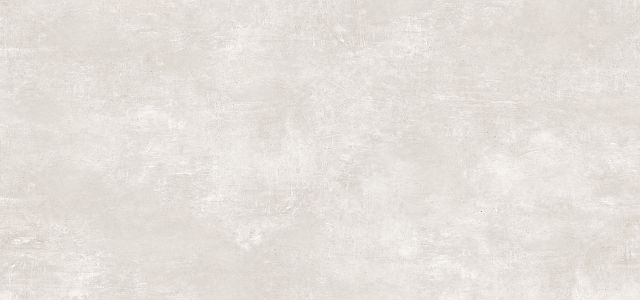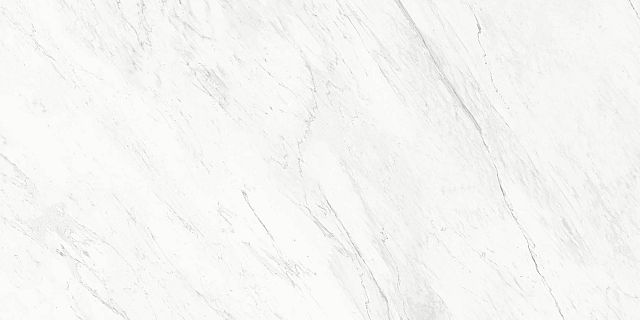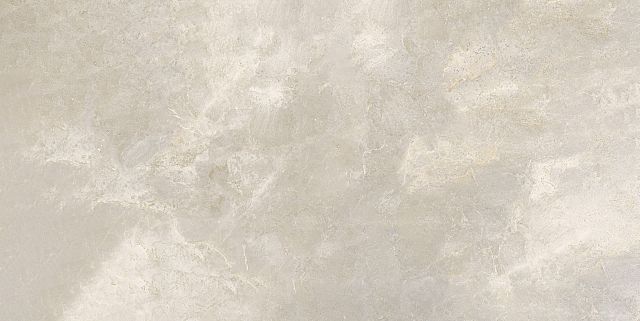Porcelain panels have become a significant part of the building and design industry, offering a highly desirable material for architects and designers due to their versatility and performance. They are increasingly sought after for a wide range of applications, providing an aesthetic appeal often replicating natural stone at a more competitive price point.
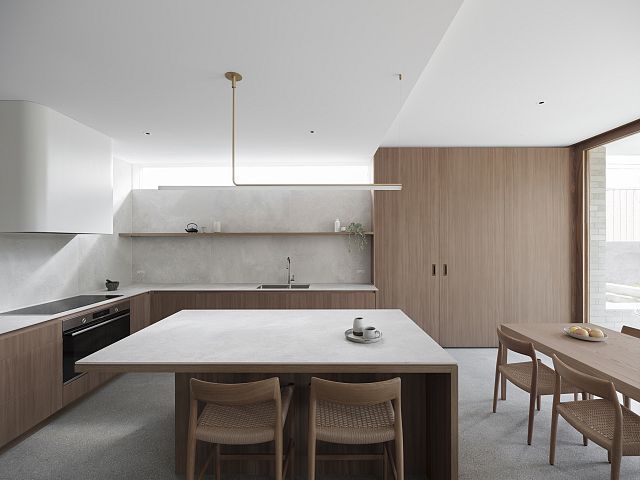
Composition and Manufacturing Process
Porcelain panels are remarkable for their natural composition and robust manufacturing process. They are made from natural materials such as porcelain clay, feldspar, quartz, and sands. These constituent elements are crushed into a very fine powder, pressed together, and then fired at an exceptionally high temperature of 1250 degrees Celsius. This intense firing process makes the material completely homogeneous, transforming it into a single, incredibly tough mass. Crucially, there are no chemicals used in binding the porcelain or created as a result of its production, mimicking nature’s way of making stone.
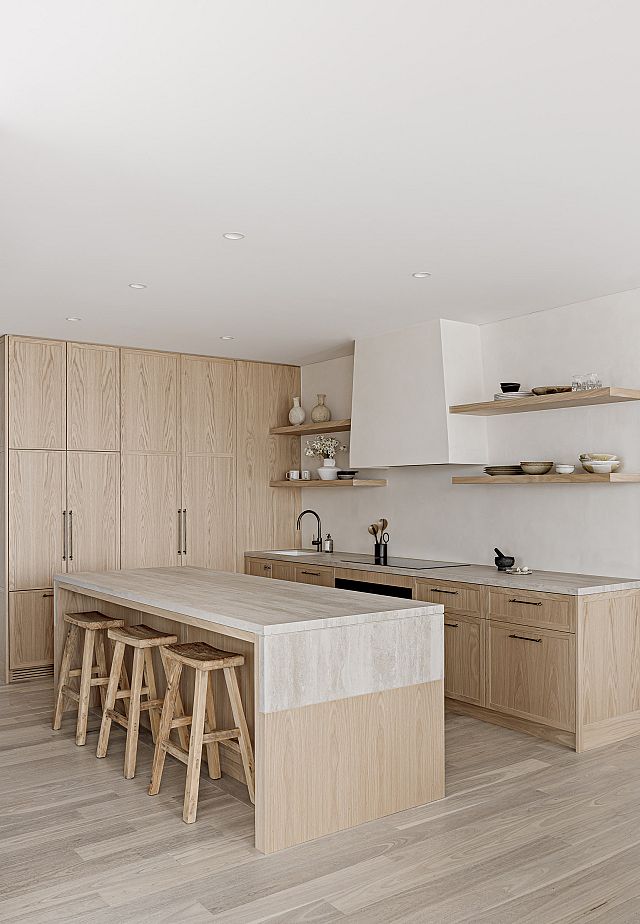
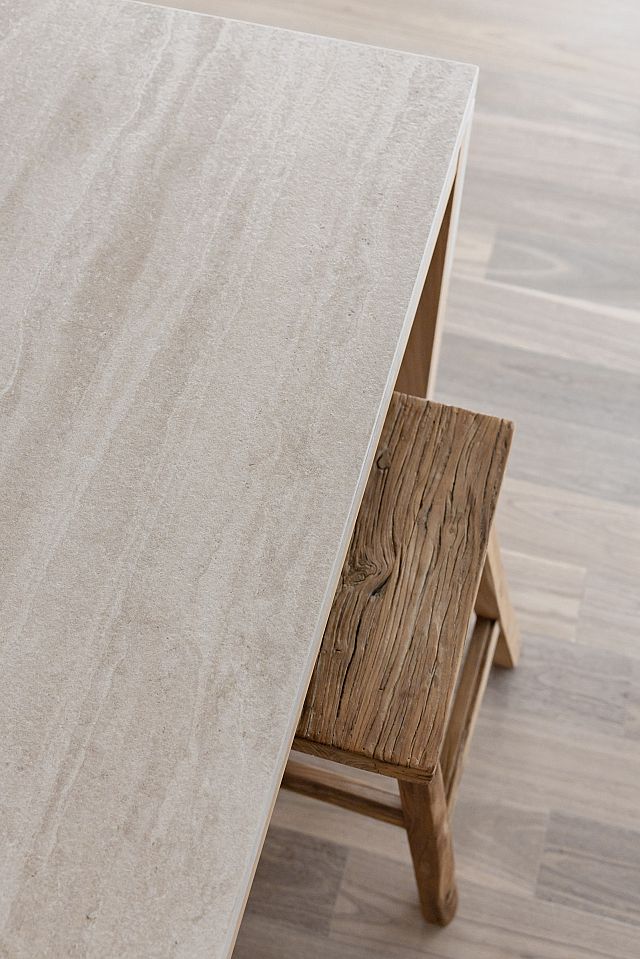
Key Characteristics and Benefits
The manufacturing process imbues porcelain panels with a host of beneficial properties, making them a superior choice for many projects:
- Exceptional Durability: Porcelain panels are described as “durable as all hell” and “incredibly tough”. They are highly resistant to scratching, staining, and marking. Unlike many natural stones, porcelain can withstand harsh forces, including those found in coastal environments with strong winds and heavy wear.
- Lightweight Nature: Weighing only 15 kilograms per square metre, porcelain panels are remarkably light. This characteristic allows them to be used virtually anywhere, including floors, walls, ceilings, and even joinery.
- Versatile Applications: Due to their strength, lightness, and aesthetic qualities, porcelain panels can be used for a diverse array of applications, both inside and outside. This includes floors, walls, ceilings, bathrooms, kitchen benchtops, and joinery. This ability to use one material in so many different ways, with a variety of colours and finishes, is highly desirable for architects.
- Cost-Effectiveness: Porcelain panel options can provide the aesthetic of expensive natural stones, such as white marbles from Italy, without the exorbitant cost. They are competitive with other natural products on the market.
- Reliability and Stability: Porcelain is an entirely heat-resistant material; having been fired at 1250 degrees Celsius, it is much harder than anything an oven or BBQ could damage. It is also entirely UV stable, meaning it can be used outdoors without concern of changing colour under sunlight.
- Zero Porosity and Easy Maintenance: A significant advantage of porcelain is that it does not need to be sealed. The manufacturing process completely removes porosity and moisture from the material, making it virtually zero porosity. This characteristic makes it exceptionally difficult for porcelain to absorb any liquid stain.
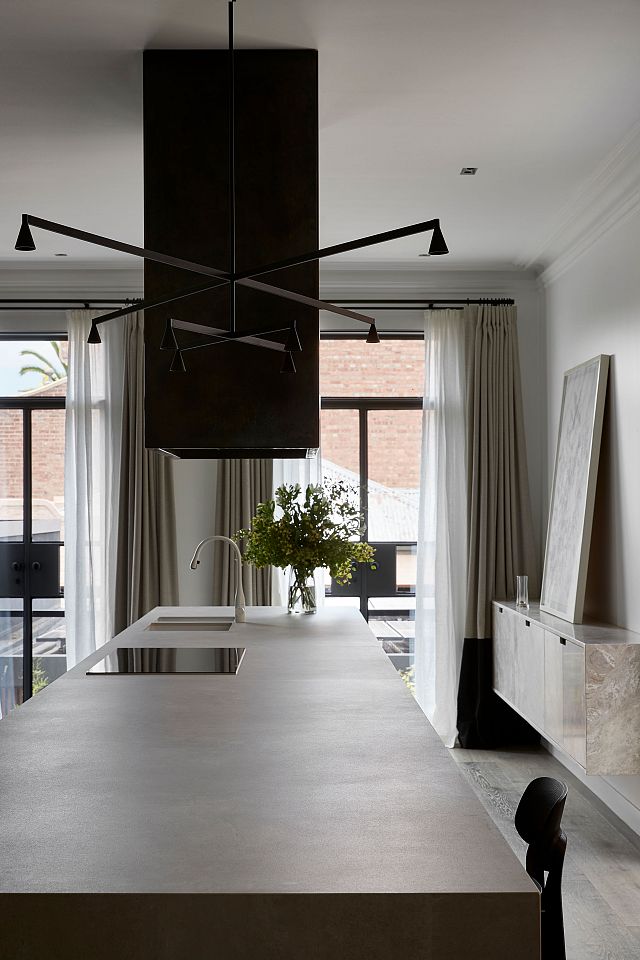
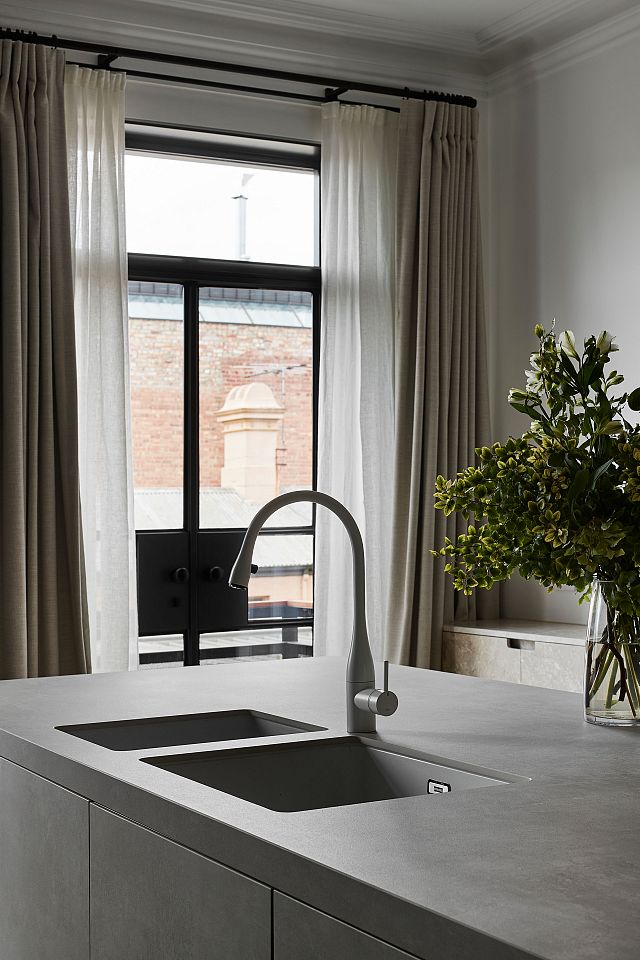
Available Thicknesses
Artedomus primarily focuses on three main thicknesses for porcelain panels:
Six-millimetre (6mm): This thickness has been available for the longest and is considered a great thickness for walls and floors.
Twelve-millimetre 12mm: The 12mm option was introduced in response to market demand for a thickness between 6mm and 20mm, particularly for kitchen benchtops where a fine edge profile might be desired.
Twenty-millimetre 20mm: Recently added to the range, the 20mm option is suitable for kitchen benchtops, bathroom vanities, barbecues and more, 20mm-thick porcelain is full-bodied allowing for a wide variety of edging details.
Installation and Processing
For projects across Australia, there is a good list of installers available, capable of handling projects ranging from very small to very large-scale commercial endeavours. This includes extensive base build refurbishments and airport lounges. Additionally, numerous factories are now equipped to process porcelain panels for applications like kitchen benchtops, vanity benchtops, and other joinery.
Porcelain panels offer a durable, versatile, cost-effective, and low-maintenance solution for a vast array of architectural and design applications, both residential and commercial. Their natural composition and advanced manufacturing result in a material that is tough, lightweight, and incredibly reliable, making them a popular choice in modern construction and design.
